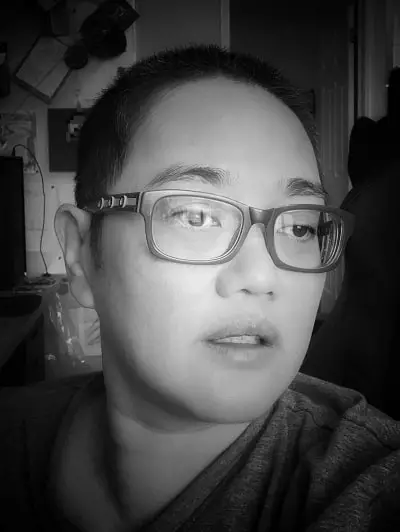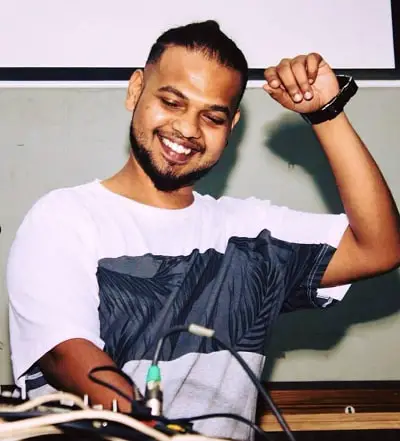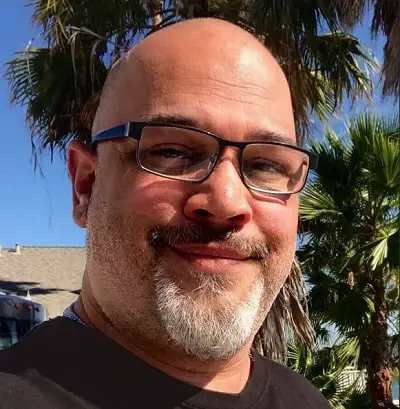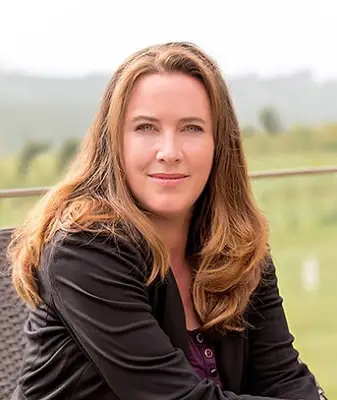Day in the life of
Indie Game Developer – Pia El-Borno

I am the co-founder of a two-person indie game studio. We just published our first casual mobile game this year. As indie game developers, we wear multiple hats…sometimes all at the same time. My partner and I share game conceptualization and design. But we also divide and delineate areas of work: for example, I do the art and the majority of the coding, he contributes to game logic and composes the music/soundtrack. We both do internal testing and Q&A.
If you’re an indie game dev, you will ideally have partners or have access to collaborators. It’s almost impossible to excel in every area of game dev by yourself.

Slingshot Effect
My Typical Day
Pre-launch
Pre-launch, a typical day would depend on what stage we are in. If we’re in the design stage, then it’s a lot of discussion and doodling and back and forth. We also do quick prototypes of a mechanic or a scene if necessary. If we’re in the programming stage, then most of the day is spent coding, testing, debugging, and iterating. Once we’ve built a working prototype, we circle back around to refining design, adding or discarding ideas, doing more artwork and coding, etc., until we are satisfied that the game is “done.” Then the days center more around catching and whacking bugs, tweaking, improving quality of life stuff. This is also when we do our language localization.

Workspace
Ready to launch
When we’re ready to launch, we do less coding and more marketing. We’re only doing mobile games for now but it entails a lot of work for a team of two. The days revolve around complying with the requirements for both the App Store and Google Play. This also includes the initial set up of your developer accounts, the business/taxes side, and all that. And then we have to prepare all the trailers, screenshots, store listing write ups…in multiple languages.
Post-launch
Post-launch is intensely marketing-focused. This means daily monitoring and upkeep of social media accounts, keeping track of our App Store and Google play metrics, and also noting which marketing strategies are working or not working. It can be very fluid. When we get a little breather from that, there are invariably bugs we missed, typos in the materials, and suggestions from reviews. We make a list of what’s doable for a quick turnaround on a game update. Because releasing an update is another chance to talk about your game all over again.
Pros
- The work is obviously creative and lots of it is fun. Most of your peers will have that “big kid” quality where they enjoy everything about video games and toys and playing, in general.
- It can pay reasonably well, but pay varies depending on your skillset. You’ll make more money based on experience, seniority, and the company you work for.
- If you’re an indie dev, you will definitely get that feeling of being a creator because you are intimately involved in every part of game development.
- It can be portable across other industries, again depending on skillset.
- A lot of jobs can be done remotely. If WFH is your preference, then this is definitely a pro.
Cons
- Lots of competition. As with most areas in the entertainment industry, because it does seem like a fun thing to do, lots of people want to be in it.
- Related to the first point, it doesn’t pay as much as you imagine it does. For example, the average software engineer will out-earn the average game programmer. Or as another example, the average senior project manager in an industry like oil & gas would laugh at a game development PM’s salary.
- If you’re an indie dev or a small indie team, your earnings are even less certain. Sure you can have a breakout hit like Stardew Valley (solo dev) or Valheim, which was developed by a 5-person team and generated something like $160M in a year but that’s very rare.
- Unstable employment. Project-based work creates a lot of churn of hiring/firing.
- Doesn’t feel very creative if you’re working for a big company or working in a big team. Most of the time, you’re only working on a small, assigned piece of the overall project, so you don’t get a sense that you’re “making” something. It’s the difference between “create a dragon” vs “create the dragon’s big toe”.
- Burnout from game crunch. Whether you work for someone or you’re indie, the pressure to deliver is intense.
Advice to aspiring Game Developers
Modern game development is a big umbrella. Traditionally, only coders who happened to apply their programming skills to make game-making were considered “game developers”. But now there are a lot of career paths in game development, particularly if you want to work for a company. You can be a game designer, a writer, a programmer, an animator or visual artist, sound designer, tester, dev ops engineer, etc.
I think that, as with any future career option, you have to have the self-awareness to discern whether you are naturally drawn to creating games. Note that a love for playing video games is not enough. Do you like inventing games for yourself and other people to play: a tabletop game, a new way to play cards, or new rules for hide and seek? Do you like writing interactive stories? Do you like art or graphic design or music? Have you ever tried to mod the video games you play? Have you ever tried making small games with Scratch or Python? Do you feel you are tenacious at problem-solving? What’s your tolerance for repetitive tasks?
If you’re thinking of employment, are you comfortable with long, high-pressure, and maybe unpaid hours? How do you feel about job churn? Will you be satisfied with making little pieces of a project instead of feeling like a “creator”?
If you want to give indie development a go, are you enough of a skilled generalist to take on most of the domains of game development by yourself or with a very small team? How’s your tolerance for financial uncertainty?
A good read on this topic would be Jason Schreier’s “Blood, Sweat and Pixels” or “Press Reset”.






